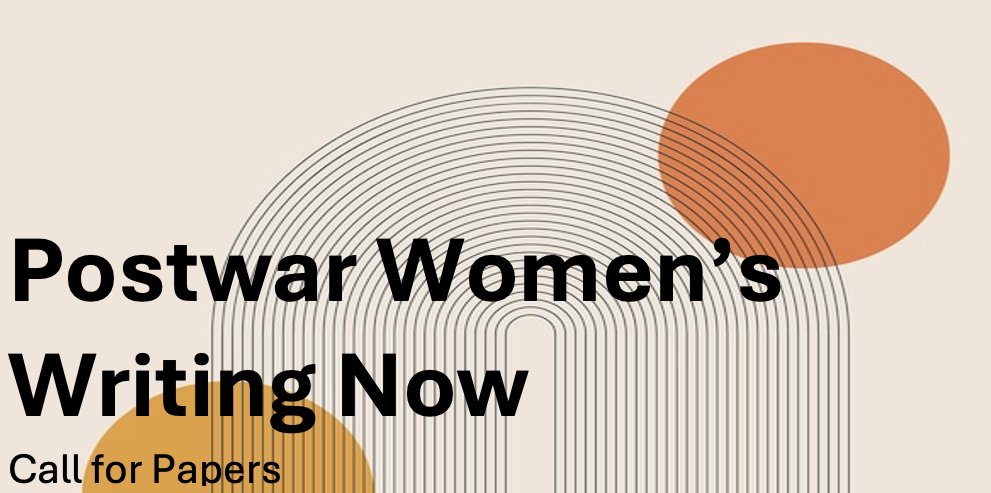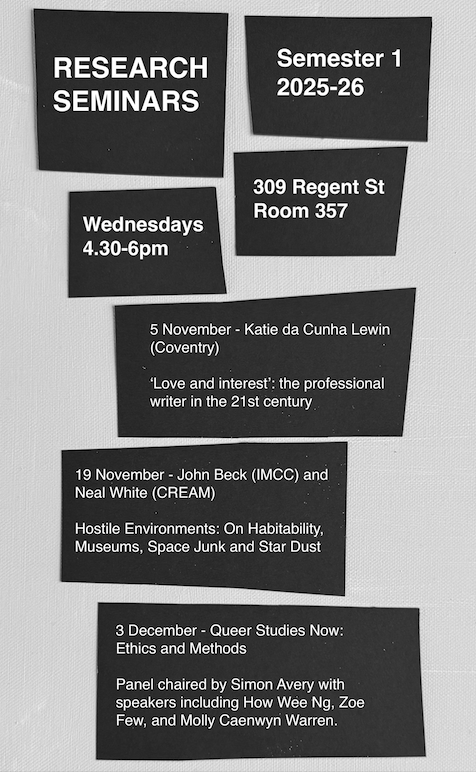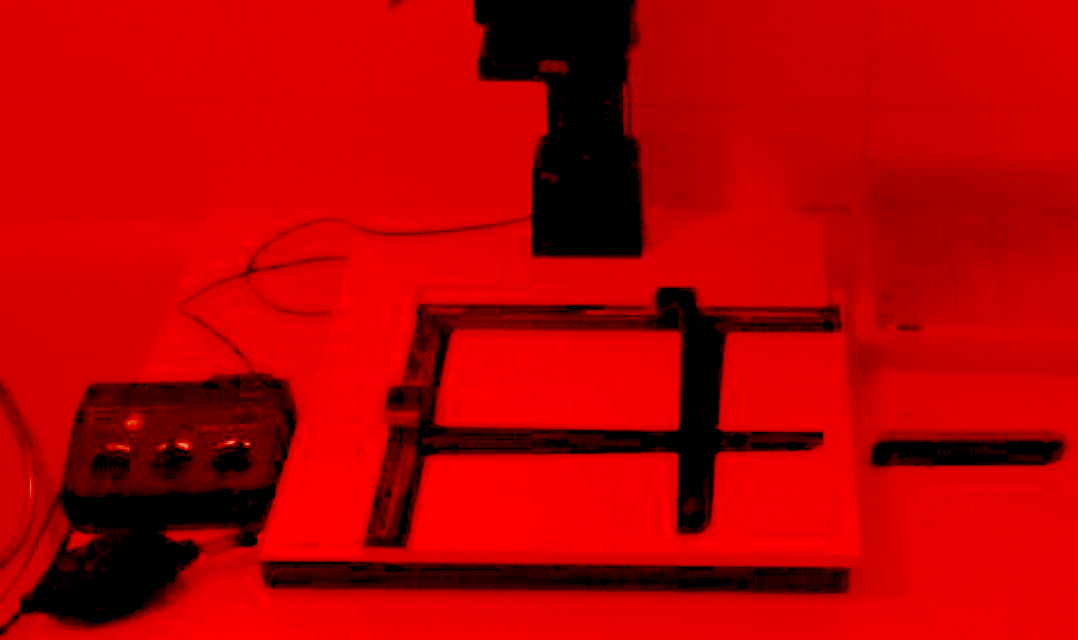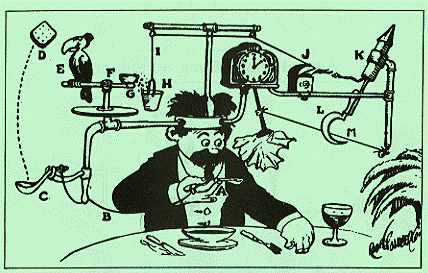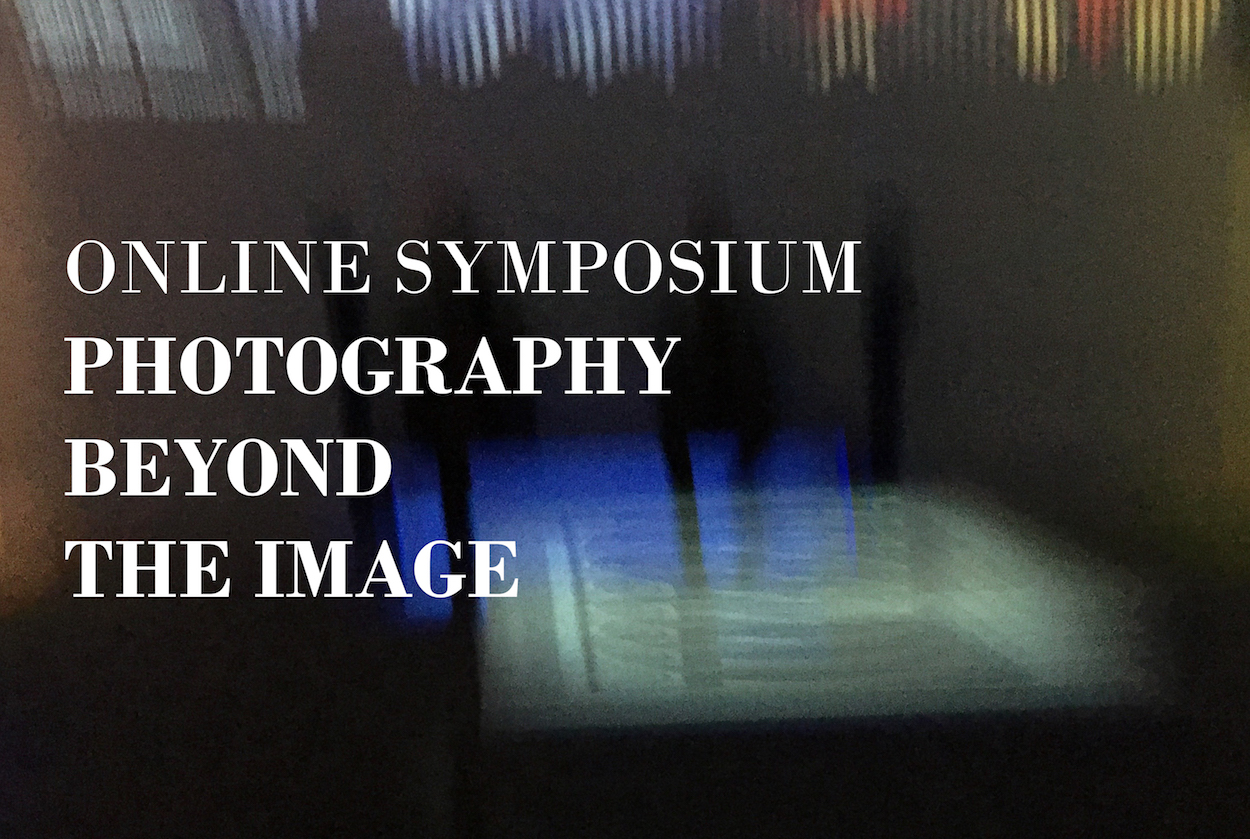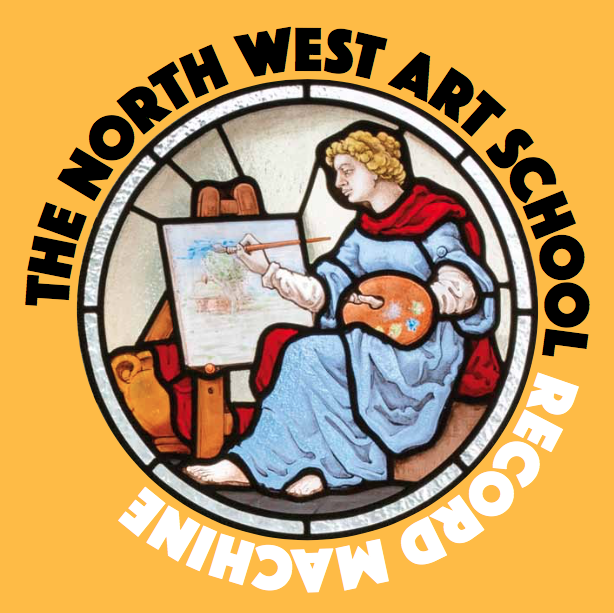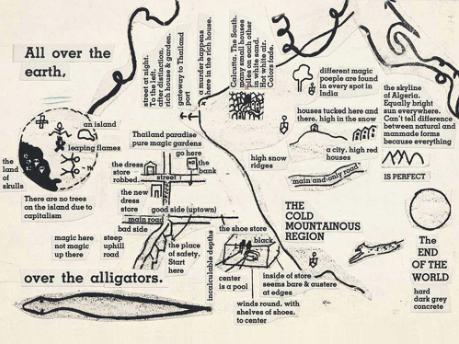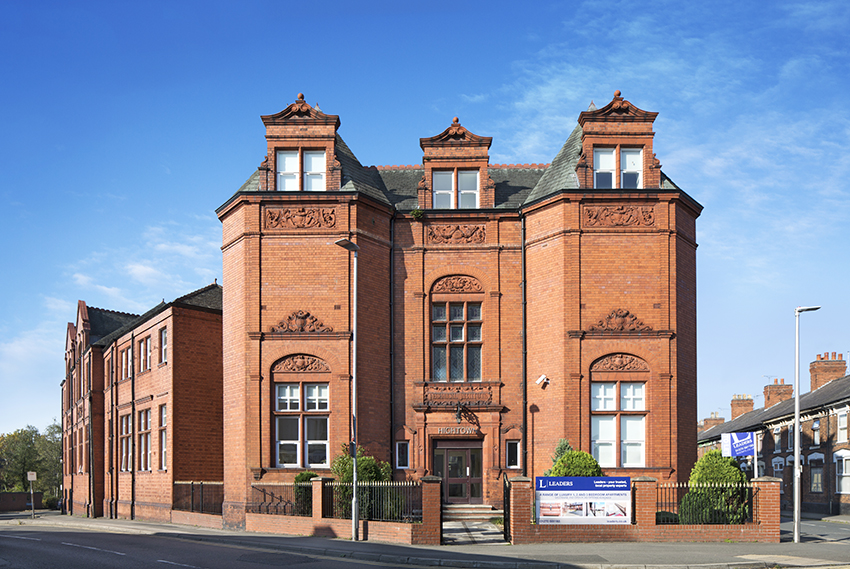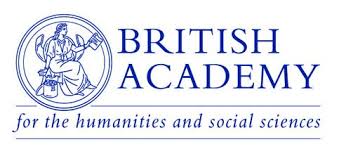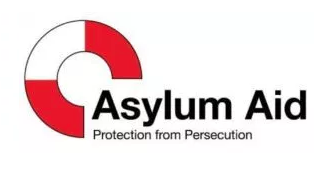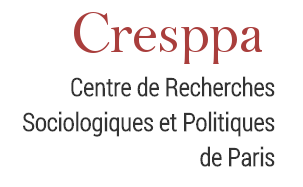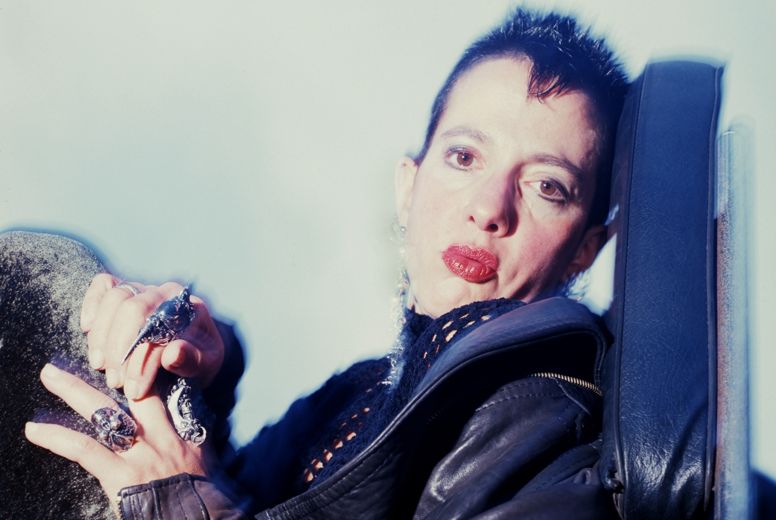Posts by John
Independent Literary Publishing and the Legacy of Peter Owen
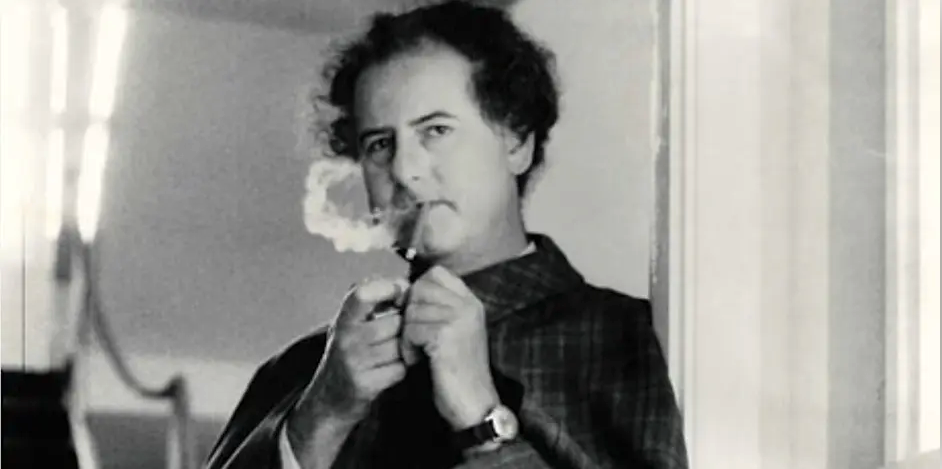 Thursday, March 19 6:30 pm to 8 pm GMT
Thursday, March 19 6:30 pm to 8 pm GMT
309 Regent Street, London W1B 2HW
This evening of discussion will shine a light on the work and legacy of the publisher Peter Owen.
Peter Owen began his publishing company on a shoestring in 1951, and the firm went on to publish ten Nobel laureates. Committed to publishing translated fiction in a country famously resistant to it, Owen brought an amazing range of writers from around the world to the UK reader — Herman Hesse, Octavio Paz, Rabindranath Tagore, Tarjei Vasaas, Yukio Mishima and Shusaku Endo. He also published a whole range of important women’s writing in English — by Anais Nin, Anna Kavan, Ithel Colquhoun, Jane Bowles, May Sarton and Marguerite Young. Owen died in 2016, living to see the rejuvenation of independent literary publishing in the UK, but his company, unlike that of his sometime collaborators and rivals, Calder and Boyars, is rarely seen as a model for contemporary independent firms. This discussion will begin to consider Peter Owen’s legacies, and what they mean contemporary literary culture.
The panel will comprise:
– Michael Caines, an editor at the Times Literary Supplement, who is writing a book on Brigid Brophy.
– Leigh Wilson (chair), author of Republishing Postwar Experimental Novels by Women: The Case of Ann Quin (2026)
– Adam Freudenheim, publisher of Pushkin Press, who bought Peter Owen’s list in 2023.
– Victoria Walker, author of the first monograph on Anna Kavan, Anna Kavan: Mid-Century Experimental Fiction (2023)
Presented by Spiracle Audiobooks.
Admission is free but please book via Eventbrite
Research Seminars Semester 2 2025-26
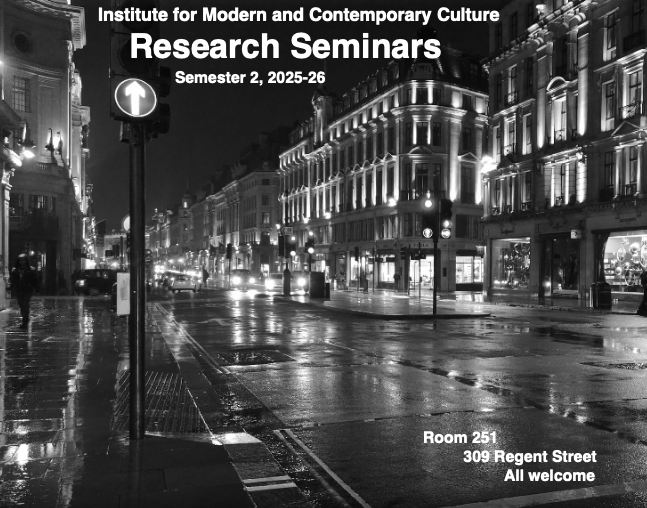 Monday 23 February, 4.30pm
Monday 23 February, 4.30pm
Georgina Colby, ‘Against Organized Abandonment: Nat Raha’s Transfeminist Sanctuaries’
NOW ONLINE:
Microsoft Teams meeting
Join: https://teams.microsoft.com/meet/35319151079244?p=OO3gA1eC4CGzvft1wJ
Meeting ID: 353 191 510 792 44
Passcode: Q7Mi7HE2
Wednesday 4 March, 4.30pm
The Politics of the Humanities
Panel discussion with Leigh Wilson, Matthew Charles,
Elinor Taylor, Siavash Bakhtiar, David Cunningham
Wednesday, 25 March, 4.30pm
D-M Withers (University of Exeter), ‘Reproducing Queer
Literary Futures: Intellectual Property and Survival’
309 Regent Street, Room 251. All welcome.
Call for Papers – Postwar Women’s Writing Now
University of Westminster, 2 May 2026
Over the last fifteen years or so, postwar women novelists, particularly those who wrote innovative fiction, have been bought back into contemporary literary culture. Writers such as Ann Quin, Anna Kavan, Brigid Brophy and Christine Brooke-Rose have been the subject of conferences, of journal articles and of monographs. They have also begun to gather attention outside of academia, and have been featured in newspaper articles, radio programmes, and podcasts. Many of these writers have been republished, and their books now appear on the front tables of bookshops, rather than being available only second hand. Some critics have read the return to these writers as a revival of the work of recovery carried out during the second wave of feminism, in particular by publishers such as Virago. Joanna Scutts wrote in 2019 that the current rediscovery of 20th century women writers is ‘a revival of an older form of feminist activism, on the part of publishers, editors, and critics, to find women writers and make their work available to a new readership’. But there has also been circumspection about the motives behind this ‘recovery’. In the London Review of Books in 2024, Sophie Smith suggested that that forgetting – the basis of the trope of recovery – ‘is a useful – and exculpatory – frame for patriarchy. But it is also a boon to capitalism.’
Postwar Women’s Writing Now will ask about our interest in these writers now. Underlying the day will be two broad questions: Why these writers? And why now? In framing the discussion with these questions, it hopes to scrutinise questions of academic fashion, publishing, the determinants of literary culture, and feminist theory and practice. While being framed by these questions, papers on a range of questions and writers are sought, including but not limited to the following:
- A number of writers have dominated recent returns to the postwar decades, but others have not so far been included in that return. Who are these writers, why have they not been included, and what might be at stake in their return?
- What does the return of postwar women writers to literary significance suggest about the relation between academic literary studies and wider literary culture?
- What is the role of contemporary publishing in this return? How has it inflected it?
- What is the role of the archive in the rediscovery of women novelists?
- Biography has long been a difficult question in the critical appreciation of women writers. How has the biographical both spurred and hindered the contemporary return to these writers?
- What can the 21st century return to these writers in particular tell us about the valence of recovery as a model?
- Is the trope of feminist recovery still useful in the 21st century?
- Sarah Brouillette has recently written that ‘the real economy has an absolutely foundational structuring role in transformations in the fate of the literary as a set of affects and dispositions’. How has contemporary economics shaped and inflected our return to postwar women writers?
- During the time of revival of interest in these writers, experimental writing in English by contemporary women writers has also had something of a boom. Writers such as Claire-Louise Bennett, Isabel Waidner, Danielle Dutton and Joanna Walsh have all written about their relation as writers to, for example, Ann Quin and Anna Kavan. What is the relation between contemporary writers and the postwar women writers?
- How do curricula choices shape contemporary literary culture?
- Is the idea of a ‘tradition’ of women’s writing useful when considering more innovative or experimental writing?
Please send abstracts of up to 500 words to Carole Sweeney (c.sweeney@gold.ac.uk), Victoria Walker (victoria-walker@outlook.com) and Leigh Wilson (l.wilson@westminster.ac.uk) by 31 January 2026.
IMCC on Instagram
We are on Instagram — follow us @instituteformodern
AHRC Collaborative Doctoral Partnership (CDP) studentship
The Home Darkroom and the Freedom of Photographic Production in Britain, 1950s-present
The University of Westminster and the Museum of the Home are pleased to announce the availability of a fully funded collaborative doctoral studentship from October 2024 under the AHRC’s Collaborative Doctoral Partnership (CDP) scheme.
This PhD will be the first to research the relationship between the home darkroom and LGBTQ+ people’s quest for freedom of expression and visual representation in Britain from the 1950s to the present. The project will combine the archival study of LGBTQ+ photographic practices at home with two complementary collecting projects: oral history interviews with LGBTQ+ darkroom users and photographs of and produced in home darkrooms. By working with contemporary practitioners, the student will also rethink how to share such hidden stories with museum audiences.
This project will be jointly supervised:
– at the University of Westminster by Dr Sara Dominici (Senior Lecturer in Photographic History and Visual Culture), Professor Pippa Catterrall (Professor of History and Policy), and Dr Alison Hesse (Lecturer in Museum and Gallery Studies)
– at the Museum of the Home by Marina Maniadaki (Exhibitions and Project Manager) and Louis Platman (Curator)
The student will be expected to spend time at both the University of Westminster and the Museum of the Home, as well as becoming part of the wider cohort of CDP funded students across the UK. The student will have access to the same levels of training, support, and expertise as members of staff at the Museum of the Home, thus developing core museum skills alongside academic capabilities.
For more information on the studentship and how to apply, follow this link.
Humanities and IMCC Research Seminar Series, March and April 2024
7th March – Dr Ailsa Peate: “‘The narco is in fashion’ (Martell, 2022). Representations of Corporeality and the Banalization of Violence in Pre-Transitional Mexico”
28th March (extended session) – Dr Nigel Mapp: “Adorno, Hamlet, and the Protestant Animal” and Dr Federica Mazzara: “Borders as Playscapes of Resistance” POSTPONED
11th April – Dr Sara Dominici: “Seeing in the Darkroom”
Seminars start at 4pm in UG04, 309 Regent Street. All welcome.
Re-imagining Cross-sector Collaborations, March 13, 2024
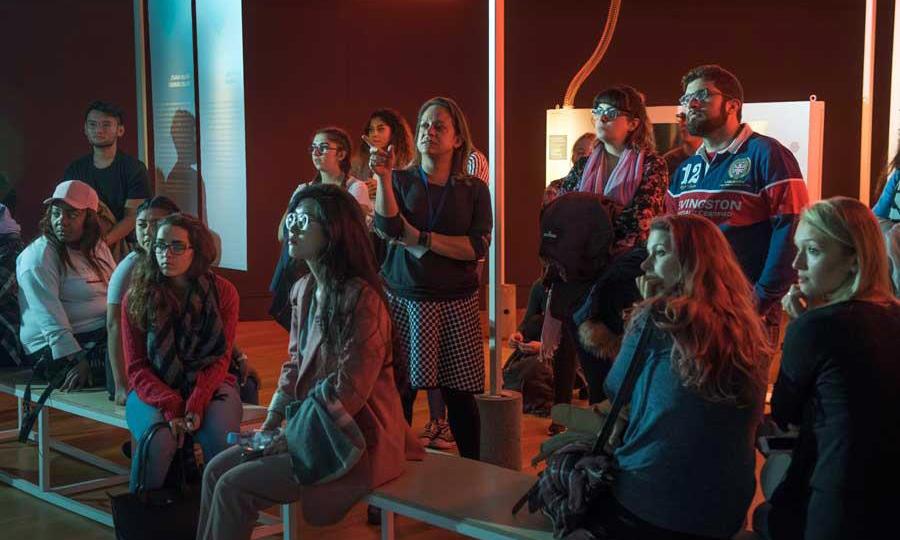
13 March 2024, 5.30 pm
Fyvie Hall, Ground floor, University of Westminster, 309 Regent Street, London
You are warmly invited to join a roundtable discussion to explore how researchers across museums and universities can work together to meet the challenges of a rapidly changing research landscape. This event is produced by the MA Museums, Galleries & Contemporary Culture at the University of Westminster in collaboration with the Museum of London Docklands.
The idea of what comprises ‘research’, who and what this involves, and its impact and responsibilities have undergone a significant change in the twenty-first century. Researchers are encouraged to be more outward facing, collaborative and enterprising. This has changed the kinds of research we do, as well as the places it is performed. Academic research has always been central to university life, but increasingly it has been recognised as an integral function of the museum: underpinning the care, display and understanding of collections; the content of exhibitions and programming; and the museum’s relationship with its audiences.
With interventions from funding bodies, museum research has become more formalised, more academic, and the boundaries between the university and museum worlds have become permeable. Alongside this shift, the role of museums in society has been increasingly questioned, with calls to decolonise, diversify, and democratise museum practice, offering challenges and opportunities for new museum-based researchers. In higher education institutions the research landscape is also changing, where the Research Excellence Framework exercise (REF), with its emphasis on impact and knowledge exchange, is shaping the research agenda.
Despite these different institutional pulls, researchers in museums and universities have more in common than ever, sharing a commitment to learning from the past to engage critically with the present and imagine a different future. Working in complex, bureaucratic institutions also shapes how responsive researchers can be to the challenging cultural and social issues they can encounter. As such, this evolving research environment has the potential to generate new opportunities to rethink traditional boundaries between scholarship and practice-based research, and to imagine new synergies for cross-sector collaborations that will benefit both fields and, crucially, the communities we all serve.
Chaired by Domenico Sergi (Senior Research Lead, Museum of London), this roundtable discussion brings together Jeremy D. Hill (Head of Research, British Museum), Joanna Norman (Director, V&A Research Institute), Saskia Huc-Hepher (Reader in Diasporic & Digital French Studies, University of Westminster) and Xiao Ma (Doctoral Researcher, University of Westminster).
For more information and to book a place, follow this link.
Online Symposium: Photography Beyond the Image, Saturday 28 November CANCELLED
Saturday 28 November 2020, 9.30am – 1pm
Photography Beyond the Image
IMPORTANT NOTICE: The symposium, Photography Beyond the Image, which was re-scheduled online for this November, engendered some critical responses concerning the line-up of the event. Committed as we are to creating a public engagement programme based on equality, diversity, and inclusion, and appreciating that the online move of an originally UK-based event, cancelled because of COVID-19, should have been an opportunity to diversify the panels further, the decision has been made to suspend the event to consider this and are working towards developing a differently structured symposium on the topic of photographic studies beyond the visual image in the future. Apologies to those who had already booked for the event.
Recent years have seen photographic studies move beyond the analysis of the visual product. From a focus on photographs as the privileged points of access for studying photography, thus supporting a predominant understanding of the medium as a representational tool, the field is today embracing a more holistic approach. This has brought photography into a much needed interdisciplinary and intermedial analytical environment, and alerted us to the social, cultural and commercial entanglements that shape and are shaped by photographic practices.
This one-day symposium seeks to examine these intellectual trends by reflecting on their postulates, methodologies and future directions.
The event, which is free, will take place on Zoom. The Zoom link will be emailed out to everyone who has reserved a ticket on Saturday 21 November, together with a link to access the pre-recorded contributions.
The North West Art School Record Machine exhibition
12 October 2019-25 January 2020
Bury Art Museum & Sculpture Centre, Moss Street, Bury BL9 0DR
The North West Art School Record Machine
Part of this year’s annual Design Manchester festival, The North West Art School Record Machine has been developed out of John Beck and Matthew Cornford’s 2018-19 survey of the region’s art school buildings (exhibited at Bluecoat in Liverpool). The often grand nineteenth century art schools were intended to train workers for local industry, but after the Second World War they also served to incubate the generations of musicians and designers responsible for transforming British popular culture. The art school became, among other things, a record machine.
For this new exhibition, photographs of some of the region’s most distinctive art schools are accompanied by a display of over 100 record sleeves, selected by Bluecoat’s Artistic Director Bryan Biggs, that represent work produced by designers and musicians who all, in one capacity or another, emerged from the art schools of the North West. To complete the exhibition, the Record Machine also presents a display of unique mock-ups and material from renowned North West-trained designers Malcolm Garrett and Swifty.
Forthcoming gallery talks:
Saturday 16 November 2-4pm: John Beck and Matthew Cornford
Introduction to The North West Art School Record Machine
Wednesday 20 November 7-9pm: Bryan Biggs
Record Machine Collecting records and the phenomena of record sleeve design
Saturday 23 November 4-6pm: Malcolm Garrett and Swifty
Designing Records Two influential designers talk about designing for the music industry
Admission FREE. For more information, email artgallery@bury.gov.uk
or visit www.buryartmuseum.co.uk
UPDATE: there is now a Spotify playlist for the show: https://open.spotify.com/playlist/042eRogev6EDrajRq2GzKH
Georgina Colby on Acker at the ICA, August 3 2019
Saturday 3rd August 2019, 2.00 pm
ICA, The Mall, London SW1Y 5AH
IMCC’s Georgina Colby will speak as part of The Labyrinth: A Convening on the Work of Kathy Acker, along with writer Claire Finch, curator of the Kathy Acker Reading Room Daniel Schulz, and artist and writer Matias Viegener.
The Labyrinth centres on a series of presentations from scholars and those engaged with maintaining and furthering the legacy of Acker’s work, extending her lines of thought from artistic, literary and theoretical perspectives. Drawing on close textual readings, the symposium considers Acker’s output – and its relationship to other literary histories – as an engine for new relations, ideas and possibilities.
Details here
An Evening of Feminist Film, Monday 10 December
Monday 10th December
Fyvie Hall, University of Westminster
7:00-9:00pm
IMCC Presents An Evening of Feminist Film: Redell Olsen, Now Circa (2018) and Katharine Meynell, Elizabeth (2017)
Redell Olsen will present her short film Now Circa (2018), recently shortlisted for the AHRC Research in Film Awards 2018. Katharine Meynell will present her short film Elizabeth (2017).
Now Circa (1918), directed by Redell Olsen, 2018
Now Circa (1918) marks the one hundred year anniversary of female suffrage for some women in the UK. The film revolves around dialogues between two women and their counterparts one hundred years earlier, each on the eve of a march for women’s rights. Their conversations are interrupted by a mysterious poetic and out-of-time visitor; Joan Boadicea, whose speech and antics reflect the tensions, parallels and differences between women across time from the era of the suffragettes, to our own present in the age of Trump and #MeToo in 2018.
Redell Olsen is a poet, film-maker and academic. Her recent books of poetry include Film Poems (2014) and Punk Faun: a bar rock pastel (2012). She teaches poetry and poetics at Royal Holloway, University of London.
Elizabeth, directed by Katharine Meynell, 2017
Elizabeth concerns the life and work of typographer Elizabeth Friedlander, the only woman of her generation to have designed a Western typeface. The film takes an essay form, describing what is known of her life, using archive footage interspersed with landscape and speculative images and text, probing the practical and political life of women surviving on wit and skill in early twentieth century Europe.
“I liked it very much indeed — cinematically and in terms of its subject matter … Elizabeth’s roots in German modernism, her exile, the familiarity of her anonymous designs” – Laura Mulvey.
Katharine Meynell has been working as an artist since the late 1970’s across material media, using moving image, performance, drawings and artists’ books.
Tickets free, register here
The Art Schools of North West England
Saturday 17 November 2018 – Sunday 10 March 2019
Bluecoat, School Lane, Liverpool L1 3BX
The Art Schools of North West England
John Beck and Matthew Cornford
As part of their ongoing exploration of the history of art schools in the UK, this exhibition of new work by IMCC’s John Beck and artist Matthew Cornford focuses on the art schools of the North West. The core of the exhibition is a collection of over thirty photographs by Matthew Cornford of art school buildings or the sites upon which they stood. Monuments to the economic power of the region in the nineteenth century, and often the result of tangled social and cultural forces — where working class struggles for education and self-organisation collide with the industrialists’ desire for a narrowly trained and compliant workforce and growing middle class demands for local cultural institutions — the art school buildings are markers of past social, political and aesthetic ambition and, especially in those cases where buildings have been sold off and, at best, repurposed as flats or offices, reminders of the extent to which that ambition has shrunk as it has been progressively individualised, privatised and monetised.
More information here.
Carla Harryman in conversation with Redell Olsen, Saturday 3rd November
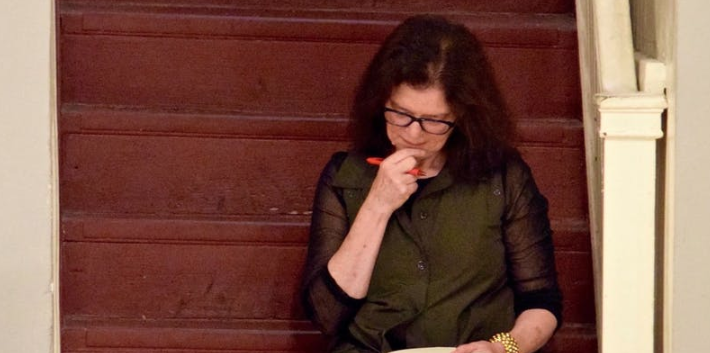 Saturday 03 November 2018, 7-9pm
Saturday 03 November 2018, 7-9pm
Fyvie Hall, University of Westminster, 309 Regent Street, London, W1B 2HT
S A L O N – LONDON presents Carla Harryman in conversation with Redell Olsen
Carla Harryman will read from her recent works including Sue in Berlin and Hannah Cut-In. Redell Olsen will be discussing and showing extracts from her recent performance and film works.
About Carla Harryman:
Carla Harryman has authored twenty books including Sue in Berlin, a collection of Poets Theater Plays and performance texts written between 2001-2015, (PURH, 2018). Harryman’s Poets Theater, interdisciplinary, and bi-lingual performances have been presented nationally and internationally. Recent performances include Gardener of Stars, an Opera, a work for micro-electronics, piano, and speaking and singing voices composed in collaboration with Jon Raskin, with performances in Chicago, San Francisco, Los Angeles, and Detroit, a bilingual version of Mirror Play with actor Juliette de Laroque (Rouen, France, 2017); and Occupying Theodore W. Adorno’s “Music and New Music,” a keynote lecture-performance (with pianist Magda Mayas and composition by Jon Raskin and Carla Harryman) presented at dOCUMENTA 13. A CD of the Adorno lecture-performance with Gino Robair on piano is forthcoming from Rastascan Records.
Publications of the last ten years include the essay, Artifact of Hope, published in Kenning Edition’s Ordinance Series in 2017 Adorno’s Noise (2008), a radical experiment in the essay as form; The collaborative ten volume work, The Grand Piano: Experiments in Collective Autobiography, San Francisco 1975-1980 (completed in 2010), The Wide Road (2011) with Lyn Hejinian, an erotic picaresque in poetry and prose; and the diptych W—/M— (2013), which Tyrone Williams describes as a tracing and retracing of “the line per se as nomadic consciousness multiplying beyond the doubles that mark, and thus engender, the self-patrolled borders of identities.” Her critical writing focuses on feminist experimental writing, non/narrative, and performance. She is the editor of Non/Narrative (2011), a special issue of the Journal of Narrative Theory, and co-editor of Lust for Life: On the Writings of Kathy Acker (2006).
Harryman has received numerous awards including a fellowship from the Foundation for Contemporary Art, grants from the National Performance Network and Opera America, Next Stage, and awards in poetry from the Wallace Alexander Gerbode Foundation and the Fund for Poetry. She is a Professor in the Department of English Language and Literature at Eastern Michigan University where she teaches in their interdisciplinary creative writing program, and she serves on the summer faculty of the MFA Program of the Milton Avery School of the Arts at Bard College.
About Redell Olsen:
Redell Olsen’s books of poetry include: Film Poems (2014), Punk Faun: a bar rock pastel (2012) and Secure Portable Space (2004). She has published critical essays on contemporary poets and poetics and produced a number of handmade artist bookworks – the most recent of which was exhibited at the Poetry Library, South Bank and involved the use of light sensitive papers. ‘Now Circa (1918)’ a short film written and directed by Redell Olsen in response to the anniversary of female suffrage in the UK in 2018 has been nominated for an AHRC award in the category, ‘Best Research Film’ of the year. Her recent performance work, ‘Observation Judgement Action’ or (Foil, Jumping, Daisies)’ responds to Black Mountain College and in particular the work of Josef and Anni Albers. It is comprised of film, text and music was shown as part of events at Kettles Yard, Cambridge, Black Mountain: A Celebration, Glasfryn, Wales and Café Oto, London. Redell Olsen is a professor of Poetry and Poetic Poetics at Royal Holloway, University of London where she teaches on the MA in Creative Writing – Poetic Practice.
S A L O N – LONDON is a real and virtual site for responding to the present through experimental women’s writing. The project is directed by Georgina Colby and Susan Rudy and hosted by the Institute of Modern and Contemporary Culture at the University of Westminster, and the Centre for Poetry at Queen Mary.
Free but please register at Eventbrite here.
Soviet Cosmologies and Ontologies event, Friday 26th October
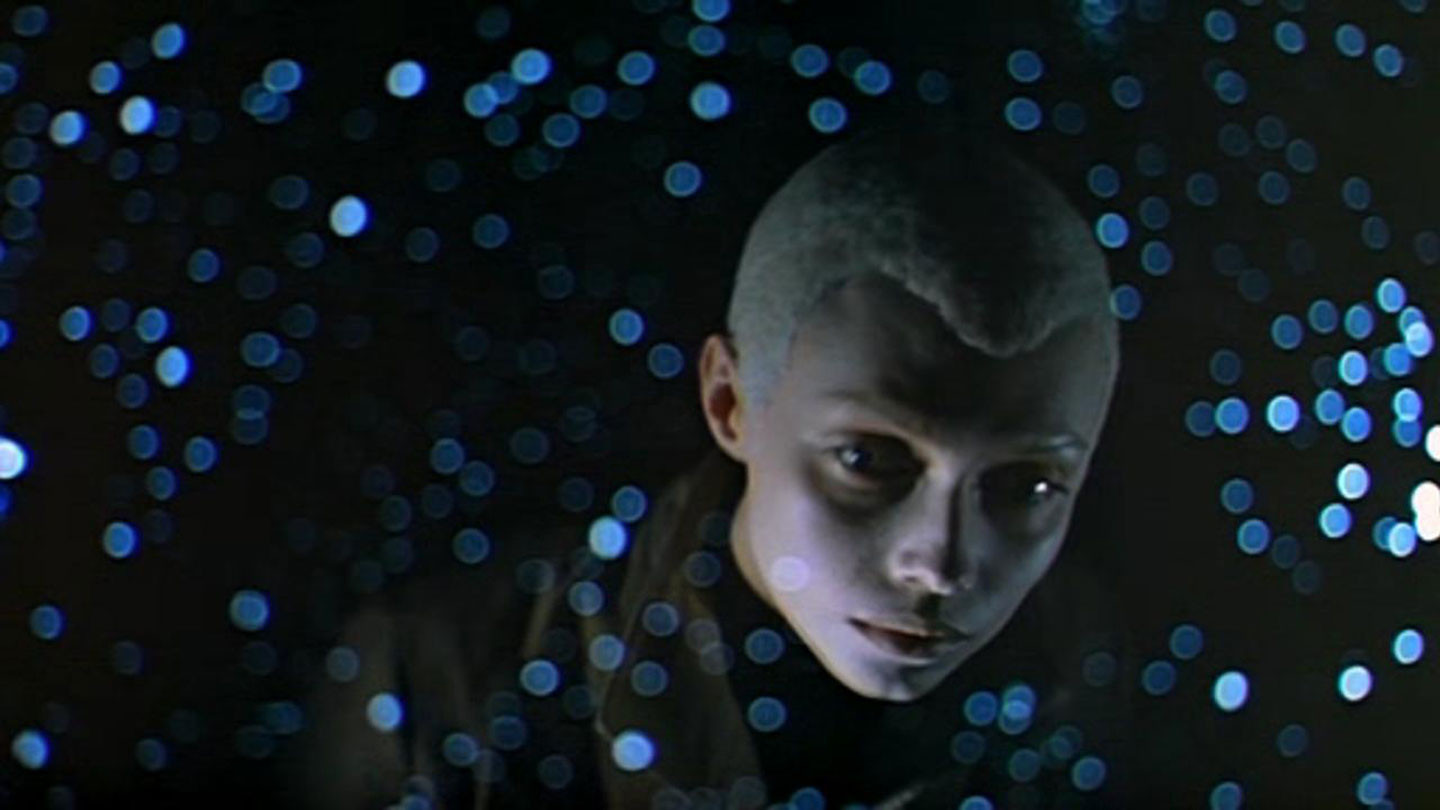
Friday 26th October 2018, 10.00 – 18.00
The Boardroom (room 117), University of Westminster, 309 Regent Street, London W1B 2HW
Soviet Cosmologies and Ontologies, 1960s-1970s
Marie Curie Foundation Symposium, Individual Fellowship, Horizon 2020
Hosted by the Institute for Modern and Contemporary Culture, University of Westminster in conjunction with the Faculty of Arts, University of Wolverhampton
There is a tendency in revisiting the narratives of historical socialism to focus on the early revolutionary avant-garde and repressive post-revolutionary contexts of Soviet cultural politics, or on the destructive legacy of Stalinism and the dissident cultural non-conformisms it produced. This generates a very familiar teleology of state oppression, in which everything is subject to the instrumental logic of Stalinism. Yet, paradoxically, the political economy of the Soviet Union in the aftermath of this repressive teleology in the 1960s and the 1970s – the years that in the historiography of socialism become the embodiment of both the Khrushchev Thaw and the Brezhnevite stagnation – is underwritten by its explicit counter-capitalist sociality. This is because it was precisely in these years that the residual utopian imaginaries of the communist tradition were able to find a becalmed and reflective (albeit, materially impoverished) place in the would-be socialist relations of Soviet production. As such, these utopian imaginaries became attached to a series of radical humanist interventions into the problems of labour, sexuality, power, gender, language, culture, the unconscious, cognition, reality, the universal, etc., in a context in which the non-libidinal character of post-capitalist political economy became a defining feature of this becalmed, reflective context. The result was the production of new ontologies and lexicons of emancipation, despite the fact that ‘state socialism’ was in its decline. This one-day conference aims to map these ontologies and heterodox socialist critiques in order to inquire as to whether they have any viability in the context of gnoseology, philosophy and critical theory today.
Speakers include:
Maria Chehonadskih (Central Saint Martins)
Keti Chukhrov (Higher School of Economics, Moscow)
Nikolay Erofeev (Oxford University)
Anke Hennig (Central Saint Martins)
Alexei Penzin (Chto Delat and Wolverhampton University)
Hannah Proctor (ICA, Berlin)
David Riff (Arts Festival Steirischer Herbst)
Galin Tihanov (Queen Mary University)
John Timberlake (Middlesex University)
Download the full programme here: Soviet Cosmologies programme.
The event is free to attend and all are welcome, but it would help us to get an idea of numbers if you could sign up via our Eventbrite page: https://www.eventbrite.com/e/soviet-cosmologies-and-ontologies-tickets-51069777078
Asylum, Translation, Voice and Testimony
 Thursday 6 September 2018, 10.00-18.30
Thursday 6 September 2018, 10.00-18.30
Room D002 Université Paris 8, 2 Rue de la Liberté, 93526 Saint-Denis
Workshop: Asylum, Translation, Voice and Testimony
The objective of this international workshop is to examine the restrictions imposed upon women’s voices in the context of reporting sexual violence as part of their migration experience in the UK and in France. The workshop will bring together academics from France and the UK, immigration lawyers, and representatives from public facing bodies, women refugees and asylum seekers, and creative writers. It will facilitate a cross sector and interdisciplinary exchange of knowledge and experience in relation to taking testimonies and translation. Case studies of women’s testimonies will be examined with regard to language, translation and testimony. These will be examined alongside the current procedure of seeking asylum, in particular the interview process.
Full details can be found here
Tickets can be booked here
This event is part of a project led by Dr Georgina Colby (University of Westminster) in collaboration with Professor Jane Freedman (Université Paris 8) and Debora Singer MBE (Asylum Aid).
Feminist Representations: Sexual Violence Against Women, Asylum and Testimony
Funded by the British Academy/Leverhulme Trust, the project aims to explore the contributions the arts and humanities may make to address institutional failures in the area of sexual violence against women and girls, with a specific focus on asylum, translation, voice and testimony. Three interdisciplinary workshops will bring together academics, practitioners, politicians, campaigners and writers. The objective is to open up avenues of expression for women when relaying their testimonies and the impact of sexual violence, and to provide feminist representation that moves beyond the parameters of legal expression. Adopting an interdisciplinary methodology, participants will examine case studies of asylum seekers’ testimonies as a means to reveal the issues of translation women meet when voicing their narratives. The project will shed light on specific issues women seeking asylum who have experienced sexual violence encounter when telling their stories. These findings will inform academics, policy makers, and writers who will address these issues in issues in scholarly and creative works.
For further information, see the project website here or email Georgina Colby.
Whose voice is it anyway?: Feminist Inclusivity in Practice and Theory, April 17
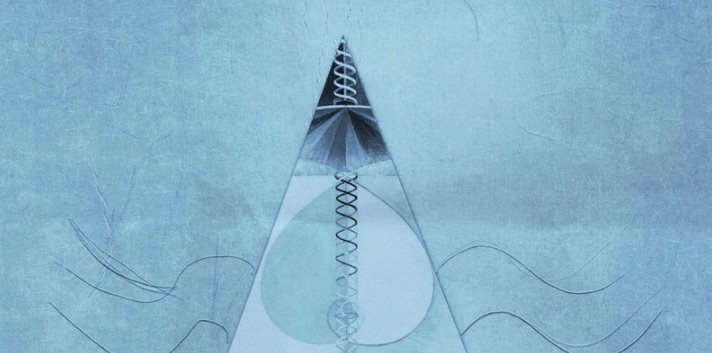 Tuesday April 17 2018, 6.30pm-10pm
Tuesday April 17 2018, 6.30pm-10pm
Yurt Cafe, St, Katharine’s Precinct, 2 Butcher Row, London E14 8DS
Whose Voice is It Anyway?: Feminist Inclusivity in Practice and Theory
This event seeks to bring together writers and academics whose works engage with the intersectionality of feminist theory and practice. Organised by Isabelle Coy-Dibley and Genna Gardini, this event is part of the S A L O N – London project, a feminist environment championing solidarity and the creation of a platform that brings about change by finding new forms of feminist kinship, directed by Dr Georgina Colby and Professor Susan Rudy.
The evening focuses on the three key pillars of the project – Solidarity, Activism and Language. The event will feature an interdisciplinary panel of speakers, including Eleanor Perry, Isabel Waidner, Linda Stupart and Nala Xaba, and aims to question how inclusive feminism is, whether/how it should be inclusive, and how the works of these speakers’ challenge, transgress, problematise, experiment and interact with feminism. Through hearing perspectives and readings from our speakers, we will tackle questions such as: how does the experimental and innovative writing and readings of works engage with present forms of feminism; and how do these forms of writing challenge, resist, and actively reshape feminist practices? By viewing writing as a form of activism and a place to voice political, social and cultural issues and desires for transformation, we will investigate S A L O N’s assertion that “Experimental, multi-modal, transgender and multi-lingual languages are emerging as linguistic forms for inscribing voiceless narratives of those excluded and marginalised.”
Doors will open at 6:30pm, for a 7pm start. Wheelchair accessible.
Free, but please register here.
For more info visit https://www.salon-london.org/events/
S A L O N – LONDON presents Laynie Browne in conversation with Andrea Brady, March 13 2018
Tuesday March 13 2018, 7pm-9pm
Fyvie Hall, University of Westminster, 309 Regent Street, London W1B 2HW
Laynie Browne in conversation with Andrea Brady
Laynie will be reading from three works:
Periodic Companions is a novel with characters based on the periodic table of elements. Relationships are based upon chemistry, and characters investigate poetics, contemplative practices, and outsider culture. Overwhelmed with the futility of institutional structures, and impelled to act in response to tragic acts of violence, the elemental characters create a collective action based upon chemical signalling using human tears, in the hopes of inventing a new context for non-violent protest.
You Envelop Me. A book length poetic elegy, You Envelop Me takes its title from the thirty-second psalm and explores connections between birth and loss. How does one in mourning converse with those absent, yet ever present? These poems seek to enter that sturdy edifice of emptiness, wherein time is suspended, and one is paradoxically held by the departed. How is a motherless daughter conceived? What befalls those who succumb to waves of grief akin to contractions of birth? You Envelop Me is woven from contemplative practices which permit us to approach the unimaginable. The world with the beloved removed is permanently altered, perhaps most significantly in the way the living learn that indispensible vision occurs beyond the visible world.
The Book of Moments (forthcoming 2018, in two editions, one English, one French, from Presses Universitaires de rouen et du havre, Rouen, France).This book of relatively short prose fiction/hybrid pieces is an exploration in reinvention of forms: including the found, the invented and foregrounding perception as subject and object. This book seeks the boundary between real and imagined and hovers at a location often in between. This work is inspired by the revolutionary prose of writers such as Lydia Davis, Marguerite Duras, Hélène Cixous, and others writing off the map between genres, outside conventional expectations of “story.”
A poet, prose writer, teacher and editor, Laynie Browne is author of thirteen collections of poems and three novels. Her most recent collections of poems include You Envelop Me (Omnidawn 2017) P R A C T I C E (SplitLevel 2015), and Scorpyn Odes (Kore Press 2015). Recent books of prose include the novel Periodic Companions (2018) and short fiction in The Book of Moments (2018). Her honors include a 2014 Pew Fellowship, the National Poetry Series Award (2007) for her collection The Scented Fox, and the Contemporary Poetry Series Award (2005) for her collection Drawing of a Swan Before Memory. Her poetry has been translated into French, Spanish, Chinese and Catalan. Her writing has appeared in many anthologies including The Norton Anthology of Post Modern Poetry (second edition 2013), Ecopoetry: A Contemporary American Anthology (Trinity University Press, 2013), Bay Poetics (Faux Press, 2006) and The Reality Street Book of Sonnets (Reality Street, 2008). She teaches at University of Pennsylvania and at Swarthmore College.
Andrea Brady is a poet and Professor of Poetry at Queen Mary, University of London. Andrea’s books of poetry include The Strong Room (2016), Dompteuse (2014), Cut from the Rushes (2013), Mutability: Scripts for Infancy (2012), and Wildfire: A Verse Essay on Obscurity and Illumination (2010). At Queen Mary she runs the Centre for Poetry and the Archive of the Now.
The event is free but please register with Eventbrite
Georgina Colby on Kathy Acker in the TLS
Georgina Colby has a new article on Kathy Acker in the Times Literary Supplement this week and there is also a podcast. Follow the links:
https://www.the-tls.co.uk/podcast-freedom-books-flowers-moon/
S A L O N – LONDON presents Redell Olsen in conversation with Carolyn Pedwell, November 3rd 2017
Friday 3 November 2017, 7pm-9pm
The Parasol Unit Foundation for Contemporary Art, 14 Wharf Road, London, N1 7RW
Redell Olsen in conversation with Carolyn Pedwell
S A L O N – LONDON, a site for reading and responding to the present through women’s experimental writing, is pleased to announce its launch event, featuring Redell Olsen, who will be reading from two recent works, ‘Woolf / Apelles’ and ‘Atomic Guildswomen’, followed by conversation with Carolyn Pedwell.
Redell Olsen’s poetic practice comprises poetry as well as texts for performance, film and installation. Her publications include Film Poems (Les Figues, 2014), ‘Punk Faun: a bar rock pastel’ (Subpress, 2012), ‘Secure Portable Space’ (Reality Street, 2004), ‘Book of the Fur’ (rem press 2000), and, in collaboration with the bookartist Susan Johanknecht, ‘Here Are My Instructions’ (Gefn, 2004). Her work is included in Infinite Difference: Other Poetries by UK Women Poets (Shearsman, 2010), I’ll Drown My Book: ‘Conceptual Writing by Women’ (Les Figues Press, 2011) and Out of Everywhere 2: Linguistically Innovative Poetry by Women in North America & the UK (Reality Street Press, 2016). In 2017 she published two bookworks Smock and Mox Nox. She has also published a number of critical articles on contemporary poetry and the relationship between contemporary poetics and the visual arts. In 2002 she set up the influential MA in Poetic Practice at Royal Holloway which she still runs as part of the MA in Creative Writing. From 2006 – 2010 she was the editor of How2, the international online journal for Modernist and contemporary writing by women. In 2013-14 she was the visiting Judith E. Wilson fellow at the University of Cambridge. In 2016-17, in association with other members of staff from English and Modern Languages at Royal Holloway, she led the HARC funded project ‘Nature and Other Forms of That Matter’. She is Director of the Poetics Research Centre at Royal Holloway. redellolsen.co.uk
Carolyn Pedwell is Associate Professor in Cultural Studies at the University of Kent, where she is Head of Cultural Studies and Media. Carolyn has been Visiting Fellow at the Department of Gender and Cultural Studies, University of Sydney; the Centre for the History of Emotions, Queen Mary University of London; and the Gender Institute, London School of Economics. She is the author of Affective Relations: The Transnational Politics of Empathy (Palgrave, 2014) and Feminism, Culture and Embodied Practice (Routledge, 2010). Her new book, Transforming Habit: Revolution, Routine and Social Change, is under contract with McGill-Queen’s University Press. Carolyn is also an Editor of Feminist Theory journal.
S A L O N – LONDON is organized by Georgina Colby and Susan Rudy. The launch of S A L O N – LONDON has been funded by the Institute of Modern and Contemporary Culture at the University of Westminster, the Centre for Poetry, Queen Mary University of London, and the School of English and Drama, Queen Mary University of London.
Please register here: Eventbrite

